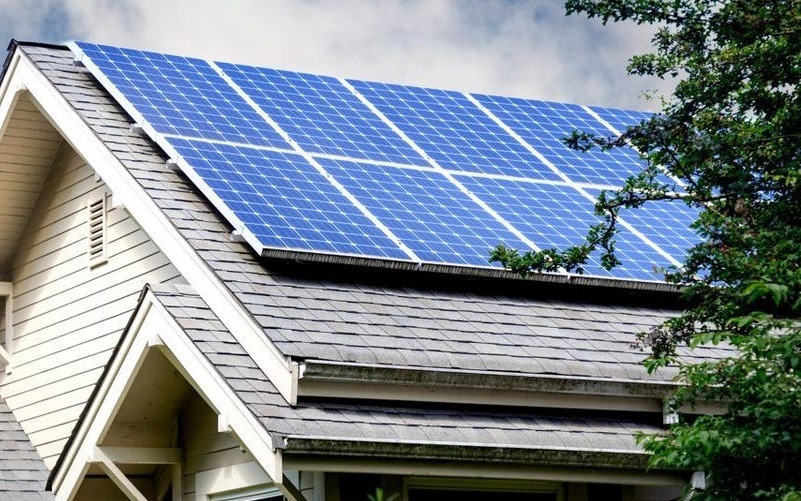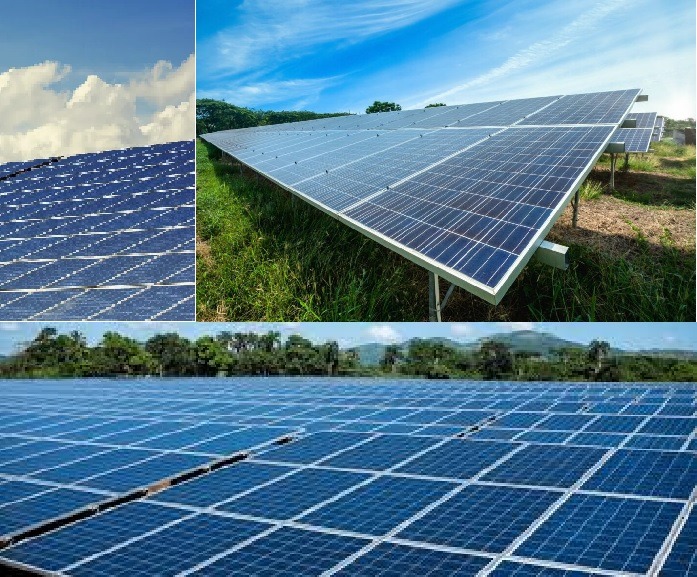
How to Start Solar Power Business in Nigeria
How to Start Solar Power Business in Nigeria – Do you want to know How to Start Solar Power Business in Nigeria? Then read this article thoroughly.
So, if you’re looking to venture into the renewable energy industry and make a positive impact on both the environment and the Nigerian energy landscape, starting a solar power business in Nigeria could be a rewarding endeavor. With its abundant sunshine and the growing demand for clean energy solutions, Nigeria presents a promising market for solar power entrepreneurs. This is How to Start Solar Power Business in Nigeria.
However, like any business, establishing a solar power company requires careful planning, market analysis, and a comprehensive understanding of the industry. In this guide, we will explore the essential steps and considerations to help you kickstart your solar power business in Nigeria successfully. From market research to legal requirements, financing options to marketing strategies, let’s delve into the world of solar energy entrepreneurship in Nigeria. Read more about How to Start Solar Power Business in Nigeria.
Contents
- 1 A Must-Read Article for Intending Solar Energy Businessmen:
- 1.1 The potential and opportunities in the Nigerian solar power market:
- 1.2 Types of Solar Power Businesses: How to Start Solar Power Business in Nigeria.
- 1.3 Types of Business Plans: How to Start Solar Power Business in Nigeria.
- 1.4 How to Start Solar Power Business in Nigeria:
- 1.5 Start-up Processes for Solar Power Business in Nigeria:
- 1.6 Sectoral Business Plans: How to Start Solar Power Business in Nigeria.
- 1.7 Marketing Plan for Solar Power Business in Nigeria:
- 1.8 Related Topics: How to Start Solar Power Business in Nigeria.
- 1.9 Cessummit Integrated Services for Business Development:
- 1.10 Read Also: How to Start Solar Power Business in Nigeria.
- 2 Summing Up: How to Start Solar Power Business in Nigeria.
A Must-Read Article for Intending Solar Energy Businessmen:
What we want our readers to learn from reading: How to Start Solar Power Business in Nigeria. That is,
by reading “How to Start Solar Power Business in Nigeria,” we aim to equip readers with the knowledge and insights they need to embark on their entrepreneurial journey in the solar power industry.
So, throughout the guide, readers will learn:
The potential and opportunities in the Nigerian solar power market:
We will provide a comprehensive overview of the current state of solar power in Nigeria, including market trends, government policies, and the growing demand for clean energy solutions.
Essential steps to establish a solar power business:
We will outline the step-by-step process of setting up a solar power company in Nigeria, covering aspects such as business planning, legal requirements, obtaining licenses and permits, and establishing partnerships. This is How to Start Solar Power Business in Nigeria.
Financing options and incentives:
Readers will gain an understanding of the various financing options available for solar power businesses in Nigeria, including government grants, loans, and incentives. We will also explore potential partnerships with investors and financial institutions.
Technical considerations:
We will delve into the technical aspects of solar power systems, discussing the types of solar installations, equipment selection, and the importance of quality and reliability in the Nigerian context.
Marketing and customer acquisition strategies:
To succeed in the competitive solar power market, effective marketing strategies are crucial. We will provide insights on identifying target customers, developing marketing plans, and building strong customer relationships. This is How to Start Solar Power Business in Nigeria.
Operational challenges and solutions:
Running a solar power business comes with its own set of challenges. We will address common obstacles and provide practical solutions, including maintenance, supply chain management, and workforce recruitment and training.
Ultimately, by the end of the guide, readers will have a solid understanding of the Nigerian solar power industry, the necessary steps to start their own business, and the strategies required for sustainable growth and success in this exciting and rapidly evolving sector.
Types of Solar Power Businesses: How to Start Solar Power Business in Nigeria.
Solar power can be harnessed and converted into electricity through various technologies. Here are some common types of solar power:
Photovoltaic (PV) Solar Power:
Photovoltaic systems directly convert sunlight into electricity using solar cells. These cells are typically made of semiconductor materials, such as silicon, and generate an electric current when exposed to sunlight. PV systems can be installed on rooftops, and solar farms, or integrated into various devices like solar calculators and portable chargers. This is How to Start Solar Power Business in Nigeria.
Concentrated Solar Power (CSP):
CSP systems use mirrors or lenses to concentrate sunlight onto a receiver. The concentrated sunlight heats a working fluid (such as water or oil) to generate steam, which drives a turbine to produce electricity. CSP systems are often used in large-scale power plants and can incorporate thermal energy storage for electricity generation during cloudy periods or at night.
Solar Thermal Power:
Solar thermal power, also known as solar thermal electricity (STE), utilizes the sun’s heat to produce electricity. It involves capturing solar radiation and converting it into thermal energy using collectors or mirrors. This thermal energy is then used to generate steam, which drives a turbine connected to a generator. Solar thermal power plants are typically designed for large-scale electricity production. This is How to Start Solar Power Business in Nigeria.
Floating Solar Power:
Floating solar power refers to photovoltaic systems installed on bodies of water, such as lakes, reservoirs, or ponds. These systems use floating platforms to support solar panels, allowing them to take advantage of water surfaces for solar energy generation. Floating solar has benefits like reduced land usage, increased energy efficiency due to the cooling effect of water, and reduced evaporation from reservoirs.
Building-Integrated Photovoltaics (BIPV):
BIPV refers to the integration of solar panels directly into building structures, such as roofs, windows, or facades. These solar panels replace conventional building materials and generate electricity while providing the functions of the building envelope. BIPV systems offer aesthetic appeal, and energy savings, and can be seamlessly integrated into architectural designs. This is How to Start Solar Power Business in Nigeria.
Solar Air Heating:
Solar air heating systems use solar energy to heat air, typically for space heating or drying purposes. They consist of solar collectors that absorb sunlight and transfer the collected heat to the air, which can then be circulated and used for various applications. Solar air heating can be employed in residential, commercial, or industrial settings to reduce energy consumption and heating costs. This is How to Start Solar Power Business in Nigeria.
These are just a few examples of the types of solar power technologies available. The choice of solar power technology depends on factors such as the scale of the project, location, available resources, and specific energy requirements.
Types of Business Plans: How to Start Solar Power Business in Nigeria.
- Strategic plans for scaling up business
- Operational/internal plans,
- Comprehensive business plan
- Business plan executive summary
- Business Plan Financial Analysis Segment

How to Start Solar Power Business in Nigeria:
Start-up Processes for Solar Power Business in Nigeria:
Starting a solar power business in Nigeria requires careful planning and execution. Here are the key startup processes you should consider:
Research and Market Analysis:
Conduct thorough market research to identify the demand for solar power solutions in Nigeria. Evaluate the competitive landscape, target customer segments, and their specific needs. Determine the regulatory framework, government incentives, and policies supporting renewable energy in the country. This is How to Start Solar Power Business in Nigeria.
Business Plan Development:
Create a comprehensive business plan that outlines your company’s mission, vision, and goals. Include a detailed analysis of the market, competition, marketing, and sales strategies, financial projections, and operational requirements. Your business plan will serve as a roadmap for your startup.
Legal and Regulatory Compliance:
Familiarize yourself with the legal and regulatory requirements for operating a solar power business in Nigeria. Register your business with the Corporate Affairs Commission (CAC) and obtain the necessary licenses and permits, such as a renewable energy license from the Nigerian Electricity Regulatory Commission (NERC).
Financing: How to Start Solar Power Business in Nigeria.
Determine your startup costs, including equipment, inventory, office space, employee salaries, marketing expenses, and working capital. Explore different financing options such as personal savings, bank loans, angel investors, venture capital, or government grants and incentives. Prepare a solid financial plan to attract potential investors or lenders.
Supplier and Equipment Selection:
Research reputable solar panel suppliers, both local and international, and select high-quality solar panels, inverters, batteries, mounting structures, and other necessary equipment. Consider factors such as product quality, warranties, after-sales service, and affordability. Establish relationships with reliable suppliers who can meet your inventory needs.
Installation and Maintenance:
Develop a team of skilled technicians who can install and maintain solar power systems. Provide proper training to ensure they are well-versed in solar panel installation, electrical connections, troubleshooting, and system maintenance. Determine the pricing structure for installation and maintenance services based on market rates and profitability.
Marketing and Branding: How to Start Solar Power Business in Nigeria.
Develop a strong brand identity and marketing strategy to reach your target customers effectively. Create a professional website, establish a social media presence, and use online and offline marketing channels to raise awareness about your solar power solutions. Participate in trade shows, exhibitions, and industry conferences to showcase your products and services.
Partnerships and Networking:
Build relationships with relevant stakeholders in the renewable energy sector, such as government agencies, NGOs, solar industry associations, and local communities. Collaborate with other businesses, contractors, and suppliers to expand your reach and offer comprehensive solutions.
Operations and Logistics:
Establish efficient operational processes for managing inventory, order fulfillment, logistics, and customer service. Set up office space and ensure you have the necessary equipment and software for smooth operations. Develop transparent and customer-friendly policies for sales, warranties, and returns. This is How to Start Solar Power Business in Nigeria.
Monitoring and Evaluation:
Implement a system for monitoring the performance of installed solar systems and collecting customer feedback. Regularly evaluate the effectiveness of your business strategies and make necessary adjustments. Continuously seek opportunities for innovation and improvement.
Remember that starting a solar power business requires technical expertise, a commitment to quality, and a focus on customer satisfaction. Stay updated with industry trends and technological advancements to stay competitive in the evolving renewable energy market.

Sectoral Business Plans: How to Start Solar Power Business in Nigeria.
This is divided into agribusiness and other industry businesses.
Agribusiness Plans:
- Agricultural business plan sample in pdf
- farming business plan pdf Africa
- Sample of agricultural business plan in Nigeria
- livestock farming business plan sample in pdf
- Vegetable farming business plan in pdf
- 10 Profitable poultry farming Businesses to Start
- 5 Profitable Fishery Businesses to Start
Other Industries business plans:
- Optimizing the Product Development Process
- Unlocking Competitive Advantage for Best Practices
- Unique Rice Distribution Business Proposal for All
- Sample Proposals
Marketing Plan for Solar Power Business in Nigeria:
Developing a marketing plan for your solar power business in Nigeria is crucial for raising awareness, generating leads, and acquiring customers. Here are the key components to consider:
Define Your Target Market:
Identify your target customer segments based on factors such as demographics (residential, commercial, industrial), geographic location, energy consumption patterns, and affordability. Tailor your marketing efforts to effectively reach and engage these specific audiences. This is How to Start Solar Power Business in Nigeria.
Unique Selling Proposition (USP):
Determine your unique selling proposition that sets your solar power business apart from competitors. Highlight the benefits of solar energy, such as cost savings, environmental sustainability, reliability, and energy independence. Emphasize any additional value-added services or products your business offers.
Branding and Messaging:
Develop a strong and consistent brand identity that reflects your values, expertise, and reliability. Create a compelling brand message that resonates with your target market. Focus on the benefits of solar energy, reliability, affordability, and the positive impact on the environment and local communities.
Online Presence:
Build a professional and user-friendly website that showcases your solar power solutions, services, and success stories. Optimize your website for search engines (SEO) to increase online visibility. Utilize content marketing strategies by creating blog posts, articles, and educational materials that highlight the benefits of solar energy and address common questions or concerns. This is How to Start Solar Power Business in Nigeria.
Social Media Marketing:
Leverage social media platforms to engage with your target audience, share relevant content, and build brand awareness. Identify the platforms most popular among your target market and create a social media strategy. Regularly post updates, tips, case studies, and success stories. Engage with users by responding to comments and inquiries promptly.
Paid Advertising:
Consider investing in online advertising campaigns to reach a wider audience. Utilize platforms such as Google Ads, social media advertising (Facebook, Instagram, LinkedIn), and relevant industry websites or publications. Target your ads based on location, interests, and demographics to maximize the impact and generate qualified leads.
Partnerships and Referral Programs:
Collaborate with local businesses, contractors, and industry influencers to expand your reach. Offer referral programs that incentivize existing customers or partners to refer new customers to your solar power business. Provide attractive benefits or discounts for successful referrals. This is How to Start Solar Power Business in Nigeria.
Educational Workshops and Events:
Organize educational workshops, webinars, and seminars to educate potential customers about solar energy and the benefits of your solutions. Partner with local communities, schools, or organizations to reach a broader audience. Demonstrate the installation process, discuss financial incentives, and address common concerns about solar power.
Testimonials and Case Studies:
Collect testimonials and case studies from satisfied customers who have benefited from your solar power solutions. Use these success stories to showcase the positive impact of solar energy and build trust with potential customers. Share these testimonials on your website, social media platforms, and other marketing materials.
Measurement and Evaluation:
Set key performance indicators (KPIs) to measure the effectiveness of your marketing efforts. Track metrics such as website traffic, leads generated, conversion rates, and customer acquisition cost. Regularly evaluate the results and make necessary adjustments to your marketing strategies based on the data collected. This is How to Start Solar Power Business in Nigeria.
Remember to continuously monitor market trends and adapt your marketing plan accordingly. Stay updated with industry news, government policies, and changes in the solar power sector in Nigeria to capitalize on new opportunities and address potential challenges.
Related Topics: How to Start Solar Power Business in Nigeria.
- Is the Solar business profitable in Nigeria?
- What do I need to start a solar business?
- How to start a Solar installation business in Nigeria?
- How much is solar in Nigeria currency?
Solar business can be profitable in Nigeria due to the country’s abundant sunlight and the increasing demand for clean and sustainable energy solutions. However, several factors influence profitability, such as market conditions, competition, pricing, and operational efficiency.
Cessummit Integrated Services for Business Development:
Cessummit, a renowned consulting firm specializing in sustainable energy solutions, is thrilled to announce the development of a comprehensive and bankable business plan tailored specifically to support your Solar Power Business startup venture in Nigeria. With our expertise and industry knowledge, we have carefully crafted a strategic roadmap that will enable you to establish and grow a successful solar power enterprise.
Our team of seasoned professionals at Cessummit has conducted extensive market research, analyzing the Nigerian energy landscape, current trends, and future projections. This thorough analysis has allowed us to identify key opportunities and challenges within the solar power sector, ensuring that our business plan aligns with the specific needs and dynamics of the Nigerian market. This is How to Start Solar Power Business in Nigeria.
In collaboration with your team, we have designed a customized business plan that encompasses every aspect of your solar power venture, including market positioning, target customers, revenue models, cost structures, operational strategies, and financial projections. We have incorporated best practices and industry benchmarks to provide you with a comprehensive roadmap for success.
By choosing Cessummit as your strategic partner, you will benefit from our extensive experience in the renewable energy sector and our deep understanding of the Nigerian business landscape. Our aim is to empower your solar power startup by equipping you with the knowledge, resources, and guidance necessary to navigate the intricacies of the industry.
To discuss the details of our bankable business plan and explore how we can support your solar power startup in Nigeria, we encourage you to contact us at [email protected] or reach out to us directly at 09053130518. Our dedicated team is ready to address any questions or concerns you may have and assist you in realizing your vision of a successful and sustainable solar power business. This is How to Start Solar Power Business in Nigeria.
At Cessummit, we believe in the transformative power of solar energy, and we are excited to partner with you on this journey toward a brighter, cleaner, and more prosperous future. Contact us today to take the first step towards turning your solar power business startup dreams into reality.

Read Also: How to Start Solar Power Business in Nigeria.
- The 5th type of business plan
- The 4 and 5 types of business plan
- Other types of business plan
- Steps in Developing a business plan
- How to use 4 types of business plans
- 3-types of business plan
- The best type of business plan
Furthermore, here are some types of business plans you may need;
- A one-page plan/pitch – for presentation or self/family considerations
- Working business plan – for administrative purposes
- Bankable business plan – this is to seek investors or loan facilities.
Summing Up: How to Start Solar Power Business in Nigeria.
In conclusion, starting a solar power business in Nigeria can be a lucrative and impactful venture. With the country’s abundant solar resources, growing demand for reliable and clean energy, and government incentives, the timing is ideal. By following a systematic approach, including conducting market research, securing financing, building partnerships, and complying with regulations, aspiring entrepreneurs can establish a successful solar power business in Nigeria. Embracing renewable energy not only contributes to the country’s sustainable development goals but also presents an opportunity to make a positive impact on the environment and the lives of Nigerian communities. As Nigeria moves towards a greener future, seizing the potential of the solar power sector can be a rewarding journey for ambitious entrepreneurs. Now, bookmark How to Start Solar Power Business in Nigeria, and share to reach your audience.






